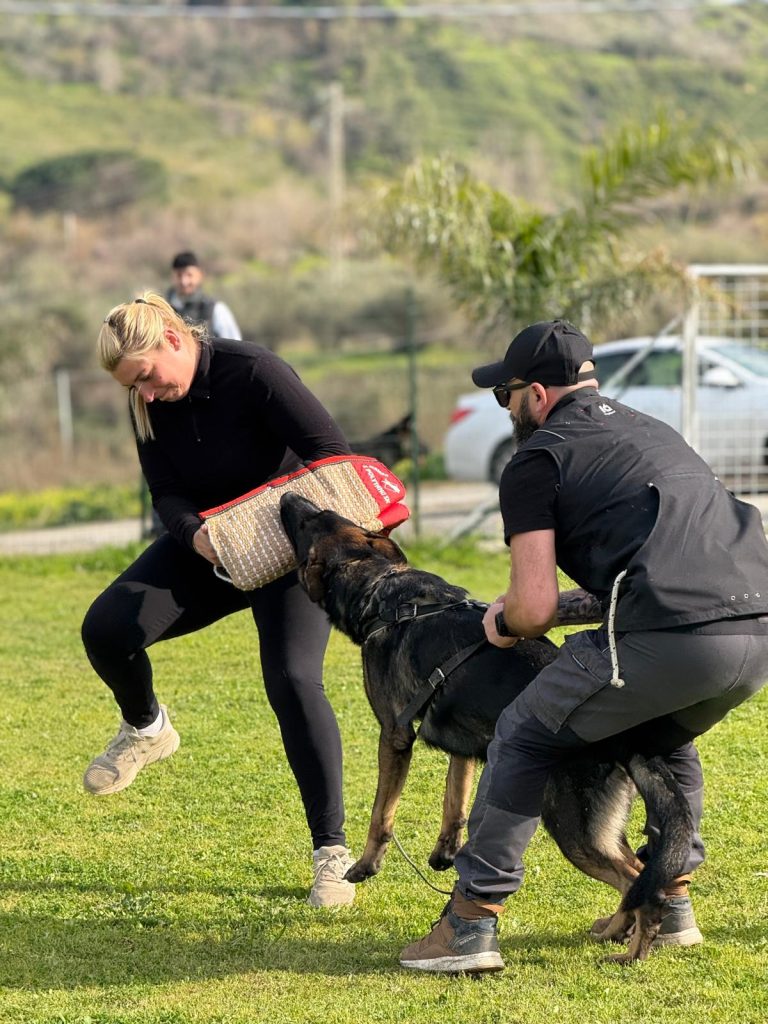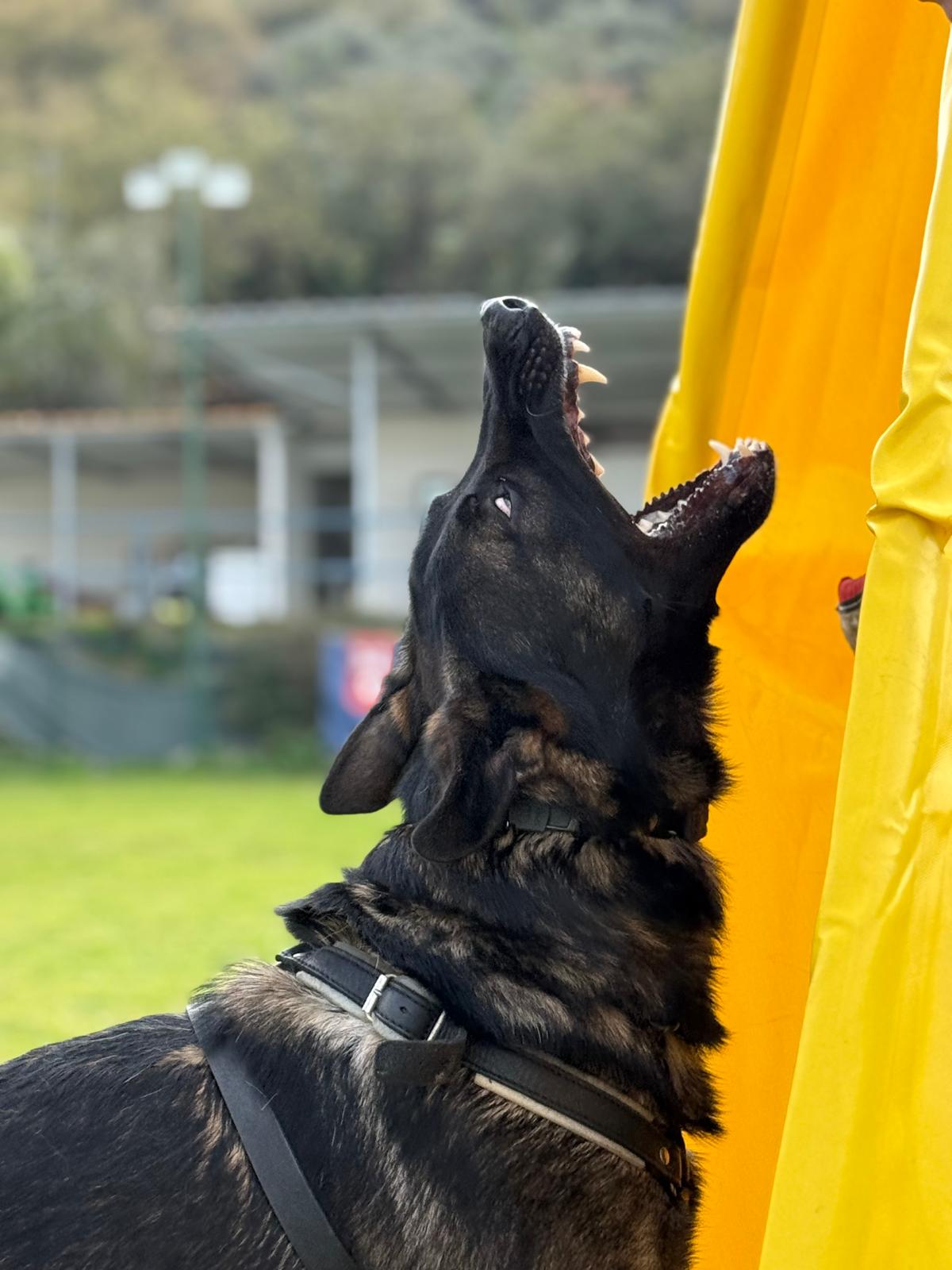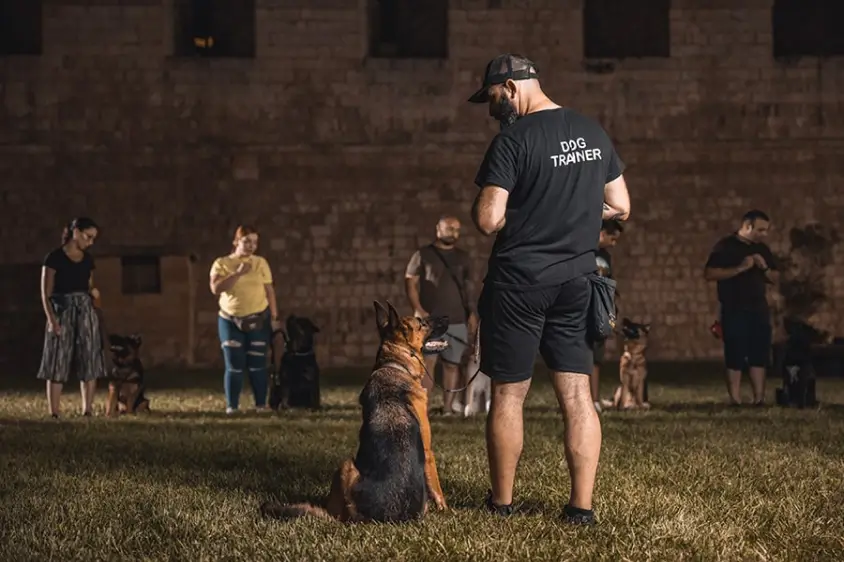With expert, personalised training in individual or group sessions.
With expert, personalised training in individual or group sessions.

Get personalised, one-on-one training that addresses your dog’s specific behavioural challenges and training goals, ensuring focused and effective results.
Improve your dog’s social skills and obedience with our group sessions, featuring interactive exercises and structured socialisation opportunities.
Access expert training advice and support through our online consultations, offering the convenience of tailored guidance from the comfort of your home.
 For the Love Of Our Pups
For the Love Of Our Pups  For the Love Of Our Pups
For the Love Of Our Pups  For the Love Of Our Pups
For the Love Of Our Pups 









Dogs are a distinct species with unique needs and ways of communication. When we invite them into our homes, we’re asking them to adapt to our human environment.
To ensure a happy coexistence, it’s crucial to train our dogs and educate ourselves about their needs.
Without this effort, both humans and dogs can end up frustrated and miss out on potential happiness.
Dogs bark for various reasons, including boredom, anxiety, attention-seeking, or responding to external stimuli like noises or other animals. Identifying the root cause of your dog’s barking is key to addressing it effectively.
Consistent training, mental stimulation, and positive reinforcement can help reduce excessive barking. If the problem persists, consulting a professional dog trainer like Robert can provide tailored solutions.
Getting your dog to obey you requires patience, consistency, and positive reinforcement. Start with basic commands and use treats or praise to reward good behavior. Practice regularly in short sessions to keep your dog engaged.
Building a strong bond through trust and clear communication is essential. Enrolling in a professional training program with Robert can also provide structured guidance and effective techniques tailored to your dog’s needs.
When a dog licks you, it can mean a variety of things. Often, it’s a sign of affection, as licking releases endorphins that make dogs feel happy and comfortable. It can also be a way for dogs to show submission or to seek attention.
Additionally, dogs may lick to taste something interesting on your skin or as a grooming behavior. Understanding the context and your dog’s overall body language can help you determine why your dog is licking.
Separation anxiety in dogs is a condition where a dog becomes extremely anxious and stressed when left alone or separated from their owner. Symptoms can include excessive barking, destructive behavior, attempts to escape, and signs of distress like pacing or drooling. This anxiety often stems from a strong attachment to their owner.
Addressing separation anxiety typically involves gradually desensitizing the dog to being alone, providing mental stimulation, and sometimes seeking help from a professional trainer like Robert to implement effective behavior modification techniques.
This website uses cookies to improve user experience. By using our website you consent to all cookies in accordance with our Cookie Policy.